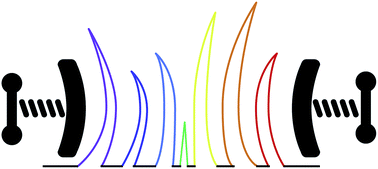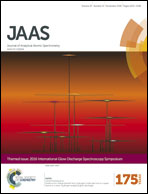Compressed sensing in spectroscopy for chemical analysis
Abstract
Analytical chemists are instilled with the Shannon–Nyquist theorem for measuring practices: the sampling frequency must be greater than two times the frequency of the signal of interest to avoid misrepresentation. Furthermore, chemical analysis techniques keep evolving to yield increasing amounts of information resulting in greater demands in data collection, data analysis and computer memory. This leads to typical practices of performing software data compression. In addition, techniques that require increases in spatial frequency of array detectors typically lead to expensive hardware solutions. Over the past ten years, compressed sensing has presented a sampling paradigm shift. The main idea is to perform compression during data acquisition which leads to several advantages, including faster analysis time and availability of cost effective alternatives to array detectors. In this short review, a summary of the main concepts of compressed sensing are presented. In addition, selected examples of compressed sensing applications in spectrochemical analysis are used to showcase its advantages and potential.

- This article is part of the themed collections: JAAS Emerging Investigator Lectureship winners and Glow Discharge Spectroscopy

 Please wait while we load your content...
Please wait while we load your content...